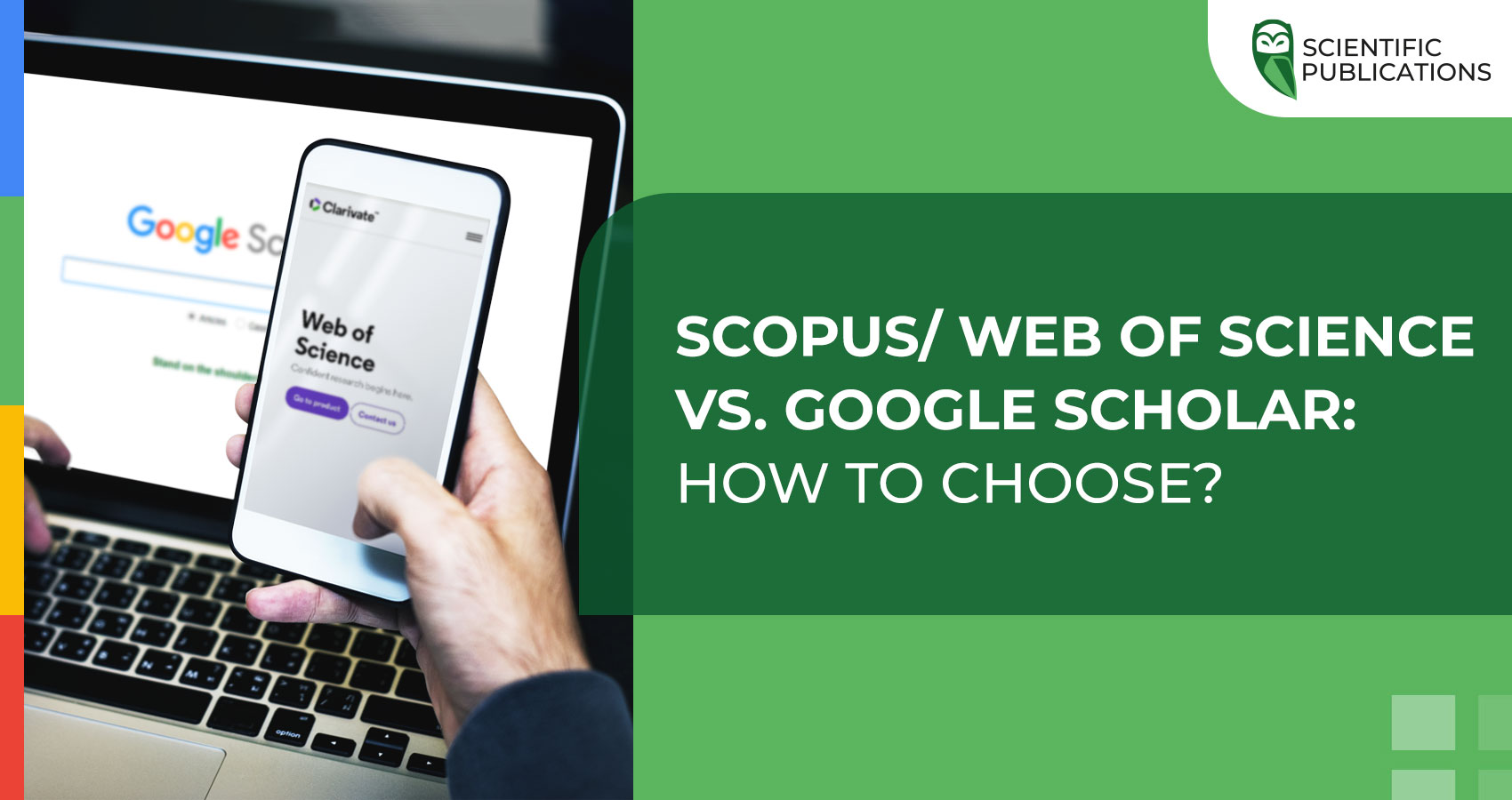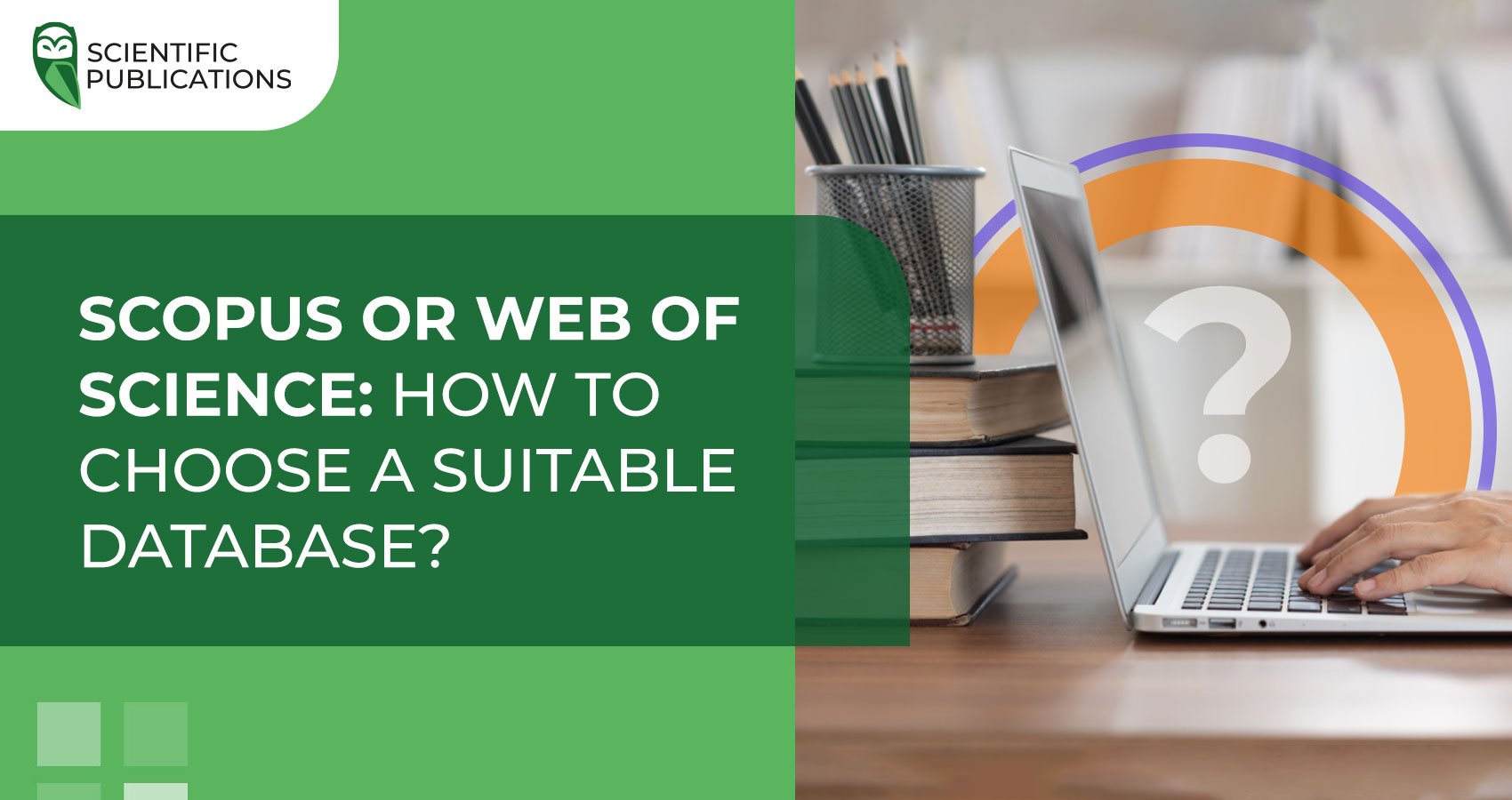Choosing between international scientometric databases such as Scopus or Web of Science and Google Scholar can be difficult for researchers and academic organisations. In this article, we will consider the advantages and disadvantages of each of these resources to help you make an informed choice.

Scopus/Web of Science vs. Google Scholar: comparative analysis
- Volume and coverage. International databases such as Scopus and Web of Science provide information on publications from a variety of journals, conferences and books undergoing a rigorous selection process. This ensures high quality of indexed sources. Therewith, Google Scholar has a much broader reach, including both scientific articles and gray sources (such as abstracts, technical reports and presentations). However, the quality of such sources may be lower, and some results may be less relevant to your research.
- Indexing and quoting. Scopus and Web of Science provide specialised indexes, such as CiteScore, Scimago Journal Rank and Journal Impact Factor, to assess the impact of publications and journals. Google Scholar does not have such a rating system, but provides data on the number of citations of each article. The lack of specialised indexes may be a disadvantage of Google Scholar, but its citation data may be useful for getting a general idea of the impact of the article.
- Usability and functionality. Google Scholar offers a simple and intuitive interface that is familiar to most users. Scopus and Web of Science have functional interfaces, but may take longer to master. However, international databases offer more advanced analytics and search functions that can be useful for more complex research tasks.
- Availability. Google Scholar is free and accessible to all users, which makes it an excellent resource for researchers with limited access to paid databases. Scopus and Web of Science are paid resources, and access to them may be limited depending on your organisation or personal subscription. It can make Google Scholar more attractive to researchers with limited resources.
- Regional context and language coverage. International databases such as Scopus and Web of Science may focus on more conventional Western sources of science. Google Scholar offers broader coverage, including publications in different languages and from different countries. This can be useful for researchers working in an international context or looking for information in their native language.
- The speed of indexing and updating data. Google Scholar updates its database more often than international scientometric databases, which can be useful for tracking the latest research. However, it can lead to more duplicate or less relevant results.
Which is better than Scopus/Web of Science or Google Scholar?
Comparing Scopus/Web of Science and Google Scholar depends on your needs and purposes. Rather than making a clear choice, consider the advantages of each system and determine which one is best suited to a particular research task.
Scopus/Web of Science
- Quality and credibility. Journals indexed in Scopus and Web of Science undergo a rigorous selection process, which ensures high quality of publications and their credibility in the scientific community.
- Metrics and analysis. Scopus and Web of Science provide a variety of metrics and tools for analysing scientific publications, such as CiteScore, SNIP and SJR. It helps to assess the impact of research and journals.
- Support of scientific institutes and grant organisations. Many scientific institutes and grant organisations recognise and require publications in journals indexed in Scopus and Web of Science, which can be important for the career of researchers.
Google Scholar
- Extensive coverage. Google Scholar covers a wider range of scientific publications, including articles, theses, dissertations, books, conferences, and even unpublished materials, which can be useful for reviewing literature.
- Free access. Google Scholar often provides free access to the full texts of scientific publications, which can be useful for researchers with limited funds or working in countries with limited access to paid resources.
- Simple to use. Google Scholar has a simple and user-friendly interface that allows users to easily find and save publications.
The choice between international scientometric databases and Google Scholar depends on your needs, availability of resources and preferences. International databases such as Scopus and Web of Science offer a more rigorous selection of sources and advanced analytical tools. However, Google Scholar may be more accessible and convenient for general information search and citation tracking. Consider using a combination of these resources to maximise the benefits of scientometric data and meet your research needs.
If you need help with publishing in Scopus or Web of Science journals, improving scientometric indicators within these databases, or increasing the citation index/Hirsch index in Google Scholar, contact our specialists!





